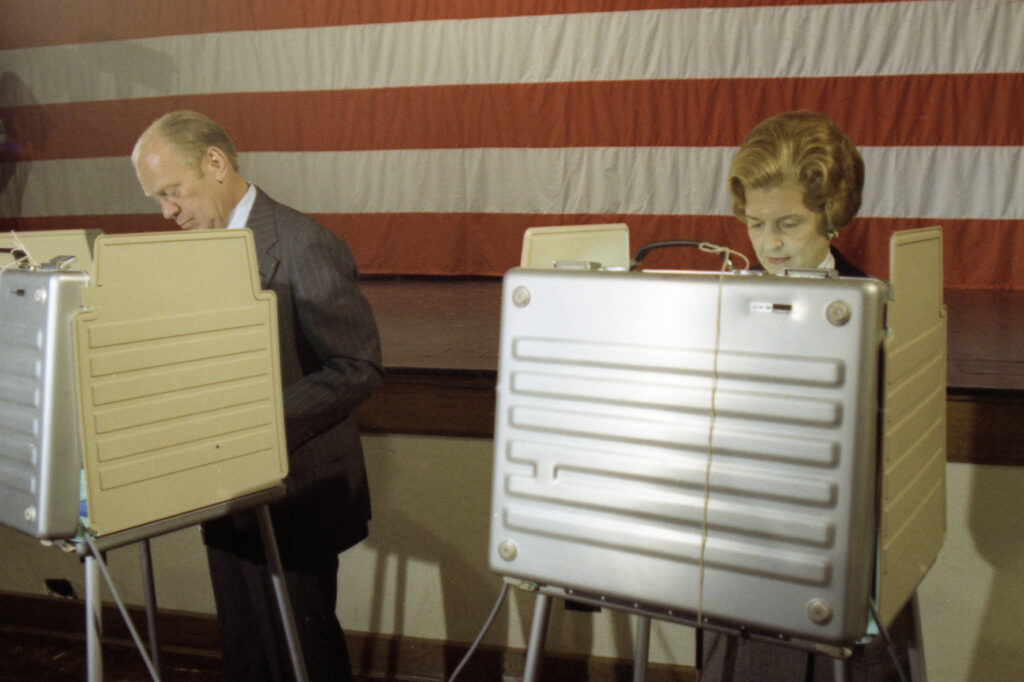Michigan’s Voter Rolls Are a Mess

In September 2020, Detroit native William T. Bradley submitted a mail-in ballot to cast his vote in the presidential election. The only problem was Bradley had been dead for months, and the ballot had been wrongly filed under his name. According to Michigan election officials, the ballot was supposed to have been attributed to Bradley’s son, who shares the same name.
The instance was resolved and written off as one of many clerical errors that occurred during the 2020 election—errors that were exacerbated by the sudden and widespread switch to mail-in voting that accompanied the pandemic. But it was an error that could—and should—have been easily prevented if Michigan election officials had been doing their jobs.
That job includes regularly cleaning the state’s voter rolls by removing registered voters who have died or moved away. Michigan does not do this nearly as much as is legally required under the National Voter Registration Act. The NVRA requires Michigan’s officials to check the state’s voter rolls every month and remove voters who are no longer qualified. An audit in 2022 confirmed this was not being done.
Michigan Secretary of State Jocelyn Benson was even sent a detailed list of deceased voters still on the state’s voter rolls ahead of the 2020 election, but she refused to do anything about it. Then, when the Public Interest Legal Foundation, a nonpartisan organization that compiled the list, filed suit against her in 2021, Benson decided she’d rather fight the issue in court than simply remove the dead voters from Michigan’s database.
The Public Interest Legal Foundation’s report should have raised alarm bells. The group found that nearly 26,000 dead Michigan residents were still considered active voters by the state. Of those, 23,663 had been dead for at least five years, 17,479 had been dead for at least a decade, and 3,956 had been dead for at least 20 years.
Benson defended herself by arguing that her office has made “reasonable efforts” to resolve the issue, and dismissed PILF’s lawsuit as an attempt to “undermine American democracy.” She also cited the aforementioned audit of Michigan’s 2020 election results, which found that 99.9% of ballots cast in the election were legal and properly counted.
But Michigan Auditor General Doug Ringler’s report was not the ringing endorsement Benson has made it out to be. He still found evidence that at least 1,616 votes out of the 5.5 million cast statewide in 2020 were from dead Michiganders. Regardless of whether they were all clerical errors, as in the case of the Bradleys, Benson’s office needed to do more to address these legitimate “concerns,” Ringler said.
And those concerns go beyond just the 26,000 dead voters PILF identified. According to another lawsuit filed against Benson by the Republican National Committee earlier this year, 53 of Michigan’s 83 counties have more active registered voters on their books than adult citizens over the age of 18.
Benson again dismissed the case as “a PR campaign masquerading as a meritless lawsuit filled with baseless accusations that seek to diminish people’s faith in the security of our elections. Shame on anyone who abuses the legal process to sow seeds of doubt in our democracy.” She has not explained what she plans to do to clean up these voter rolls, or when she plans to do it.
Perhaps that’s because she’s too busy fighting partisan causes on behalf of the Democratic Party to do the job she was elected to do. For example, she seems overly preoccupied with trying to keep former independent presidential candidate Robert F. Kennedy Jr. on the state’s ballot for the November election, despite the fact that he dropped out of the race this summer and wants his name removed.
Benson has argued that removing Kennedy’s name from the ballot at this point in the race would disenfranchise the Natural Law Party, which made him its nominee, and its voters. That’s funny, because I don’t remember Benson making that argument when President Joe Biden ended his campaign, thereby disenfranchising the tens of millions of Democratic primary voters who made him their nominee.
Benson’s fight against Kennedy, who has endorsed former President Donald Trump, is obviously political. So was her decision to speak at a pro-Kamala Harris event last week, despite vowing to serve Michiganders as a “nonpartisan.”
And that’s the problem. Benson might claim to be a champion of democracy and blame everyone else for the declining confidence in the state’s election system, but the fact is there is no one doing more to undermine Michigan’s election integrity than her.
Just this summer, she had to be reminded by the courts again that she can’t tell county clerks to presume signatures on absentee ballots are legitimate, so long as they have “any redeeming qualities.” Those signatures have to match and they have to be legitimately verified, wrote Michigan Court of Claims Judge Christopher Yates. Not just because that’s what Michigan’s Constitution and election law requires—but because public trust in the state’s ability to fairly and accurately count votes demands it.
Benson shouldn’t have to be told this. Nor should it have been necessary to take her to court to remind her that removing tens of thousands of dead voters from the state’s database is a non-negotiable part of her job.
Michiganders should ask themselves why, if Benson cares so much about election integrity, she seems to disagree.
Kaylee McGhee White is the Restoring America editor for the Washington Examiner, a Tony Blankley fellow for the Steamboat Institute, and a senior fellow for the Independent Women’s Forum. She grew up in Detroit and graduated from Hillsdale College. Follow her on X @KayleeDMcGhee.